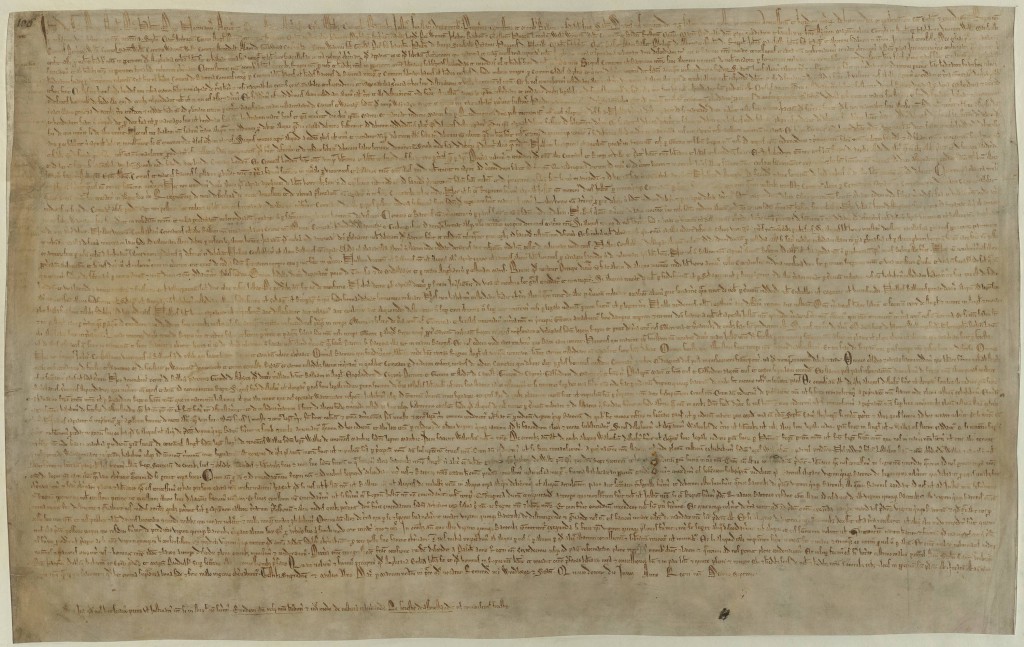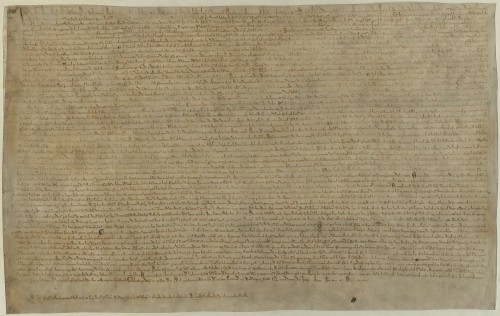16th June 2015
The Church and Magna Carta


On 15 June we celebrated the 800th anniversary of Magna Carta. It is extraordinary how a document agreed in 1215 between a medieval English king and his leading subjects continues to resonate down the ages, wherever people believe in the rule of law. I recently wrote an article trying to set Magna Carta in its proper historical context. But it is also worth remembering the words of one Chief Justice, that “the significance of Magna Carta lay not only in what it actually said, but in what later generations claimed and believed it had said”. As Nelson Mandela stated at the Rivonia Trial in April 1964, “The Magna Carta, the Petition of Rights and the Bill of Rights are held in veneration by democrats throughout the world”. The Prime Minister has set out clearly its continuing relevance to today’s debates about law, liberty and human rights.
One thing people often forget is the prominent role played by the Church in the negotiation, drafting, distribution and subsequent confirmation of Magna Carta. If they know anything, it is that Pope Innocent III sought to annul it with his Bull Etsi Karissimus. That is true, but less than half the story.
Any pictorial depiction of the sealing of Magna Carta shows King John surrounded by churchmen. As it happens, the Archbishops of Dublin and Canterbury were important players in the negotiations. The latter, Stephen Langton, intellectual and spiritual heir to St Thomas Beckett, played an essential role in proceedings, and it is no coincidence that the first clause, and amongst the most enduring, is “that the English church shall be free”.
King John sought to wriggle out of his obligations by claiming to the Pope that Magna Carta had been forced upon him. The Pope initially agreed. But when an amended version was reissued on the coronation of King John’s nine year old heir, Henry III, in 1216, it was the Papal Legate and guardian of the young king, Cardinal Bicchieri, who authenticated it with his own seal. From 1216, Magna Carta enjoyed explicit Papal approval.
That was important to the document’s future. The English bishops and other ecclesiastical officials were crucial to the work of copying, distributing and preserving copies of the text (one reason why two of the surviving four originals are held by Lincoln and Salisbury cathedrals). Archbishop Stephen Langton was its most indefatigable champion. Pope Innocent III its international guarantor. So it is right that Vatican Radio should be interested in the anniversary. And that as embassy to the Holy See we, too, should be commemorating Magna Carta 800 years on.
Very educational….and God Bless
Most interesting, Mr.Baker!
I see we were similarly inspired to mark this anniversary. My occasional column for our US journal is on the same topic — see http://americamagazine.org/content/dispatches/800-years-magna-carta-celebrated
With every good wish as ever, and to your family,
God bless,
Fr.David sj.